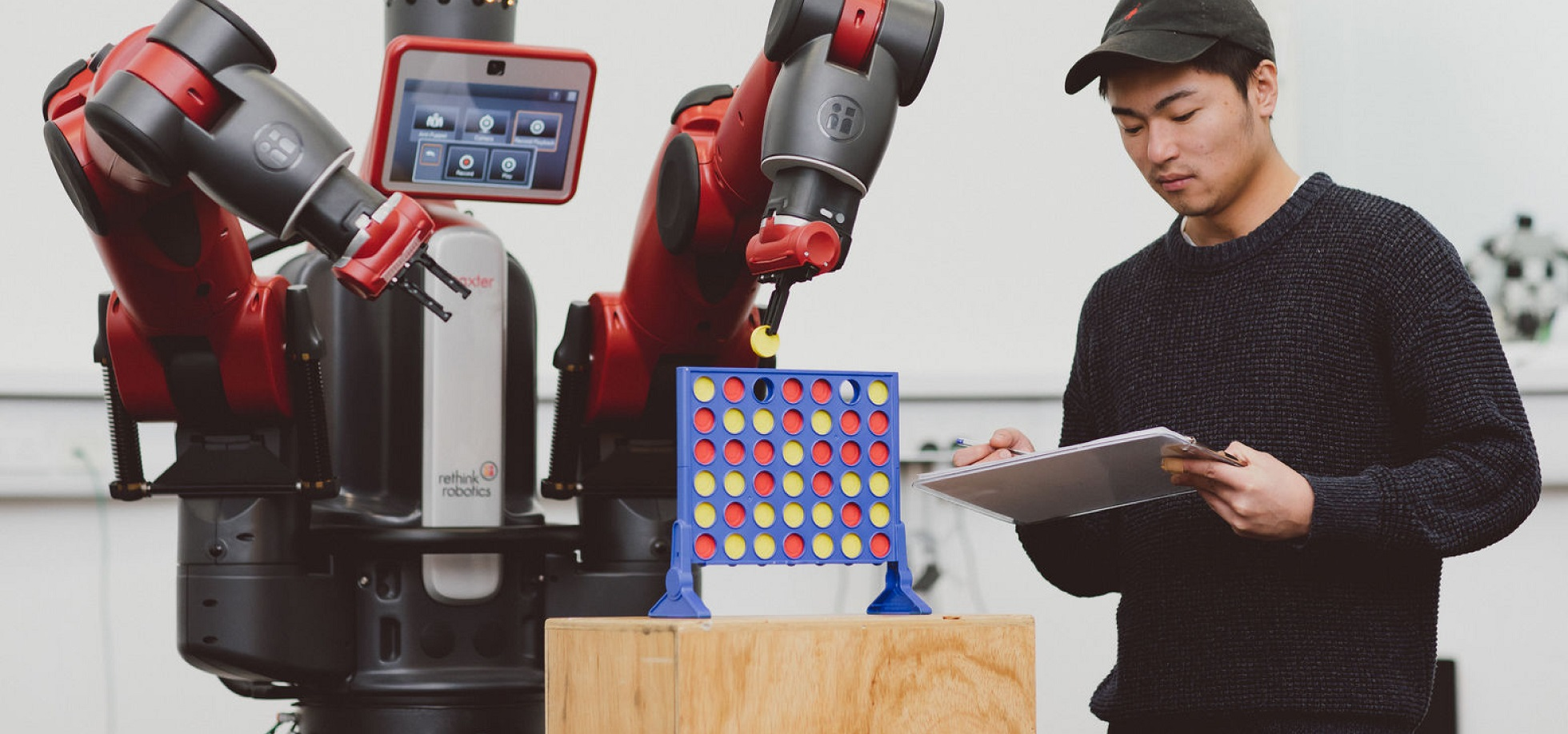
Module Description
This module gives an introduction to intelligent systems and robotics. It goes on to consider the essential ardware for sensing and manipulating the real world, and their properties and characteristics. The module then considers kinematics, especially in the context of manipulators. The programming of intelligent systems and real-world robots are explored in the context of localisation, mapping, and fuzzy control. The module finishes by discussing the recent advances in robotics, especially multi-robotic systems and robot learning.
Learning Outcomes
On completion of the course, students should be able to:1. Demonstration an understanding of a range of intelligent systems and robots
2. Explain the characteristics of a range of sensors and actuators
3. Explain the basic principles of robot kinematics, localisation and mapping
4. Make use of the principles of fuzzy logic in controlling real-world devices
5. Perform simple programming of a robot
Outline Syllabus
Introduction to intelligent systems and robotics:- A brief history of robotics, types of robots
- Robot challenges (RoboCup, DARPA Grand Challenge)
- Potential applications of intelligent systems and robotics
- Sensors and Actuators:
- Sonar, laser scanner, optical encoders
- DC motors
Control
- Feedback control
- Fuzzy controllers
Localisation and mapping
- Triangulation
- Kalman filter
Behaviour based programming
- Robot behaviours
- Potential field approach
- Behaviour based architecture
- Module Supervisor: Hani Hagras